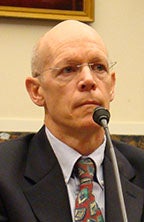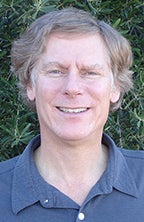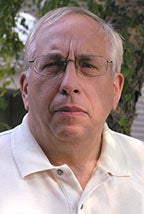Media Advisory: Adapting to U.S. Climate Change
Dec 12, 2008 - by Staff
Dec 12, 2008 - by Staff
Regional Climate Media Advisory
Transition & Other Recent Reports
Press Briefing and National Teleconference: Monday, December 15
9:00–9:45 a.m. Pacific Time (7:00 a.m. ET)
Reporters wishing to participate can contact:
Rachael Drummond, rachaeld@ucar.edu, 303-497-8604; or
David Hosansky, hosansky@ucar.edu, 303-497-8611.
SAN FRANCISCO—As computer models of climate become increasingly powerful, researchers are working toward predictions of climate change impacts in specific regions and even metropolitan areas. But are local and regional decision makers taking advantage of this science to begin to prepare for the impacts of global warming?
Three of the nation's leading experts on climate change and public policy will participate in a press conference on December 15 at the fall meeting of the American Geophysical Union in San Francisco. They will discuss the array of challenges facing cities and states, ranging from more frequent heat waves and droughts to higher costs for reliable water supplies, emergency services, and electricity. While some leaders, such as those in Chicago, are mapping out their climate future, others are not yet focusing on climate change impacts to their communities.
Reporters who cannot attend the December 15 press conference in person can call in to listen and ask questions.

UCAR vice president for corporate affairs
Fellows oversees a range of research, education, and administrative activities that support the atmospheric science community. He is working with eight leading science organizations to advise the incoming Obama administration and Congress on protecting the nation from the impacts of severe weather and climate change.
Prior to joining UCAR in 1997, Fellows served as branch chief for the White House Office of Management and Budget, where he oversaw budget and policy issues related to NASA, the National Science Foundation, and federal research and development programs. He also helped initiate the U.S. Global Change Research Program. Early in his career, he was selected as an American Geophysical Union Congressional Science Fellow and worked on such policy issues as water resources, satellite remote sensing, and research and development. Fellows holds a Ph.D. in civil engineering from the University of Maryland.

Co-director of the Institute for Environment and Society at the University of Arizona, professor of geosciences, and professor of atmospheric sciences
Overpeck oversees a climate assessment of the Southwest as part of the NOAA-led Regional Integrated Sciences and Assessments program, with particular focus on water availability and land cover change in coming decades. The assessment efforts are in support of decision making related to both climate change adaptation and mitigation.
Overpeck specializes in climate dynamics, including paleoclimate; interactions between climate and ecosystems; and climate assessments for decision makers. His primary focus is on the Southwest, but he has active projects around the globe and has played a leading international role in coordinating scientific working groups on climate variability and change. He was a coordinating lead author for the Intergovernmental Panel on Climate Change, which shared the 2007 Nobel Peace Prize. Overpeck holds a Ph.D. in geological sciences from Brown University.

Professor of atmospheric sciences and electrical and computer engineering at the University of Illinois
Wuebbles is working with policymakers in Chicago on developing strategies to help the city prepare for heat waves, precipitation changes, and other likely results of global warming.
He has led assessments of the potential impacts of climate change on the Great Lakes region and the Northeast, and studied national impacts of climate change. He worked as a lead author for the Intergovernmental Panel on Climate Change. In addition to his work on climate, Wuebbles is an expert in air quality and ozone. His research into ozone depletion in the 1970s and 1980s helped guide policies to protect the ozone layer. He serves on the International Ozone Commission. Wuebbles holds a Ph.D. in atmospheric sciences from the University of California at Davis.